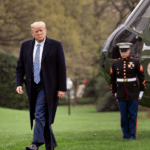


In a digital age where misinformation runs rampant, a left-leaning influencer found herself embroiled in controversy after sharing a doctored image of Vice President Kamala Harris dressed in a McDonald's uniform.
The New York Post reported that Nelson, a prominent social media personality, criticized former President Donald Trump and his supporters for spreading altered images just after she faced backlash for distributing a fake picture of Harris online.
Nelson shared the manipulated image on the social media platform X, directing a harsh message towards Trump in the process. The image displayed Harris wearing a McDonald's uniform, causing quite a stir before Nelson eventually removed it.
Following her realization that the image was fake, Nelson issued an apology and took down the post.
However, she didn't hesitate to shift the focus towards Trump and his circle, criticizing them for their own use of manipulated images, specifically those portraying Trump as a football player.
Before fact-checkers stepped in to clarify the misrepresentation, the bogus photograph of Harris circulated widely, garnering significant attention and debate on social media platforms. Andy Ngo, a journalist from The Post Millennial, pointed out that the image was used by some liberals to support the unproven claim that Harris had once worked at a McDonald's in Alameda, California.
The image featured Kamala Harris's face superimposed onto a photograph of Suzanne Bernier, a Canadian woman who sadly passed away in 2007 due to cancer. This alteration was particularly notable and attracted critique from various quarters.
Former West Virginia State Delegate Derrick Evans added fuel to the discussion by sharing the Harris image alongside the original, pointing out tersely that the fake portrayal was not only altered but disrespected the original subject.
The image's creation followed a situation in which Trump accused Harris of fabricating details about her past, including a claim that she worked at a McDonald's during her college years at Howard University in the summer of 1983.
These claims eventually led to McDonald's addressing the speculations. Yet, the fast-food giant acknowledged the hurdles in verifying such specifics, considering record limitations for that time period.
In their official statement on X, McDonald's touched on the commonly quoted “1 in 8” statistic. This statistic refers to the notion that one out of every eight Americans has worked at McDonald's at some point, illustrating the widespread nature of the chain's employment legacy.
Moreover, McDonald's statement tactfully referenced both Trump's well-documented admiration for their brand and Vice President Harris' fond memories from an undisclosed time of employment.
This incident highlights a broader trend of misinformation endemic to social media forums. The rapid spread of the Harris image underscores the viral potential of doctored visuals online.
Numerous observers are raising concerns about the ease with which falsehoods can gain traction and the difficulty in retracting them once they have been disseminated.
The situation continues to ignite debate over the ethical responsibilities of influencers, politicians, and the platforms themselves in curbing the spread of such deceptive content.
The exchange serves as a stark reminder of the challenges that come with distinguishing fact from fiction in the age of social media. It poses tough questions about the roles individuals play in ensuring the credibility of the content they share.
In an era where public figures leverage huge digital followings, the impact of their actions and the content they promote can have far-reaching consequences, both positively and negatively.
As these discussions continue to ripple through online and offline spaces, the essence of personal responsibility and accountability in digital communication becomes more pertinent than ever.
The ongoing debates not only highlight the power and pitfalls of altered imagery but also underscore the importance of honesty and verification in public discourse. Both influencers and politicians alike are tasked with navigating this complex landscape thoughtfully.
As the digital sphere evolves, the need for vigilance against misinformation campaigns remains critical, ensuring that narratives shared in the public domain uphold truthfulness and integrity.
In conclusion, this incident with Billie Nelson serves as a crucial case study in the perpetual struggle against misinformation, highlighting the need for responsible digital citizenship across all levels of influence.



